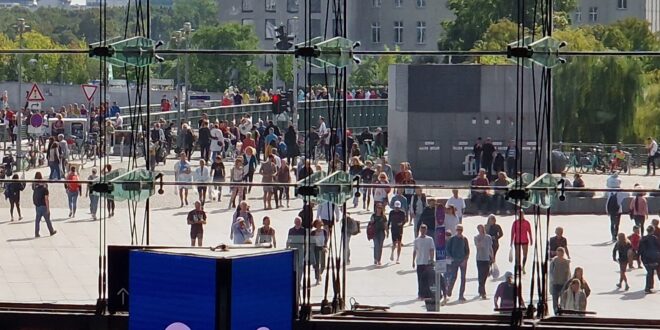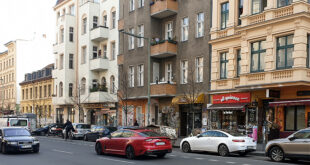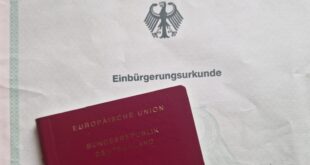Around 30 per cent of the population have a migration background, according to the new microcensus for 2023 published by the Federal Statistical Office.
A person has a migration background if they themselves or at least one of their parents were not born with German citizenship. Specifically, this definition includes immigrant and non-immigrant foreigners, immigrant and non-immigrant naturalised citizens, late repatriates (Aussiedler) and the descendants of these groups who were born as Germans, according to the agency.
In 2023, there were around 24.9 million people living in Germany with a migration background, accounting for 29.7 per cent of the population (in 2022, the proportion was 28.7 per cent). The proportion of those with a migration background among children and young people (up to the age of 20) is even higher at 42.2 per cent.
Of the 24.9 million people with a migration background
– around 12.6 million have a German passport
– around 12.9 million are foreigners
– around 16.5 million have “own migration experience”, i.e. were born abroad and immigrated
Germany’s inhabitants with a migration background are significantly younger than those without, according to the figures of the Federal Statistical Office. People with a migrant background were 35.5 years old on average in 2023, while those without a migrant background were 47.2 years old.
The gender ratio among people with and without a migration background is the same. In 2023, the proportion of women was around 50 per cent in each case.
“Immigration history” vs. “migration background”?
In 2021, the Federal Statistical Office introduced a second category of “people with immigration history” in addition to the category of “people with a migration background”.
People with a history of immigration are those who have immigrated themselves or whose parents have both immigrated. The most important difference is that it is no longer a question of whether one or both parents were born with German citizenship. Instead, it is about whether one or both parents immigrated. The category “immigration history” does not include people in the second generation, for example, of whom only one parent immigrated (these are about 4 million).
The new “immigration history” category is narrower and therefore includes fewer people.
In 2023, there were around 21.2 million people with a so-called “immigration history” living in Germany, making up 25.2 per cent of the population. This is less than the proportion of people with a so-called migrant background (29.7 per cent of the population). Among children and young people (up to the age of 20), the proportion of people with a history of immigration was higher than in the population as a whole (28.3 per cent).
Of the 21.2 million people with a history of immigration
– around 8.9 million have a German passport.
– around 12.3 million are foreigners.
– around 16.2 million are “immigrants”, i.e. were born abroad and immigrated.
Germany’s residents with a history of immigration are significantly younger than those without. People with a history of immigration were 37.7 years old on average in 2023, while those without a history of immigration were 47.2 years old.
Of the 21.2 million people with a “history of immigration” in 2023
– 11.8 per cent had a Turkish immigration history (around 2.5 million)
– 9.2 per cent had a Polish immigration history (around 2 million)
– 6.5 per cent had a Russian immigration history (around 1.4 million)
– 6 per cent have a Syrian immigration history (1.3 million).
As at the end of 2023, the majority of the approximately 16.2 million people who immigrated to Germany themselves came from Europe; about 64 per cent were from European countries (including Turkey) and about 32 per cent from EU member states.
Femi Awoniyi with the report of Mediendienst Integration
 THE AFRICAN COURIER. Reporting Africa and its Diaspora! The African Courier is an international magazine published in Germany to report on Africa and the Diaspora African experience. The first issue of the bimonthly magazine appeared on the newsstands on 15 February 1998. The African Courier is a communication forum for European-African political, economic and cultural exchanges, and a voice for Africa in Europe.
THE AFRICAN COURIER. Reporting Africa and its Diaspora! The African Courier is an international magazine published in Germany to report on Africa and the Diaspora African experience. The first issue of the bimonthly magazine appeared on the newsstands on 15 February 1998. The African Courier is a communication forum for European-African political, economic and cultural exchanges, and a voice for Africa in Europe.































